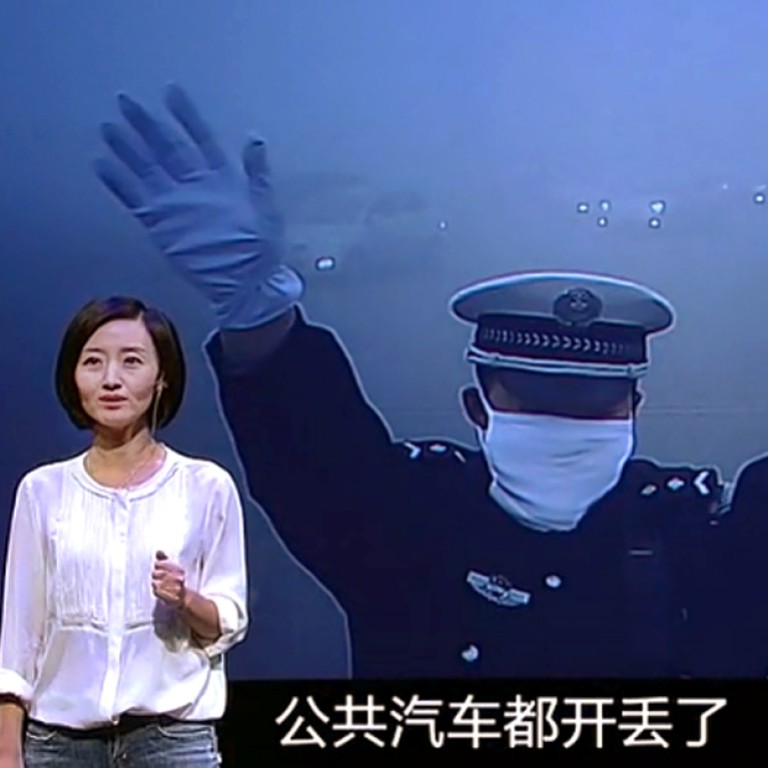
Chinese celebrity’s air pollution video stirs online dust-up
One-time CCTV host Chai Jing attracts praise and derision with a documentary call to arms about the mainland's air pollution blight
A former TV celebrity has unleashed a storm of criticism and a wave of support with a self-funded, -style documentary on the nation's air pollution scourge.
The video by former China Central Television presenter Chai Jing went viral in China - logging 155 million views in a single day - after it was released on various online sites, with critics questioning the scientific basis of her claims and supporters applauding her for shining a light on the issue.
Among those cheering was Chen Jining, the new environmental protection minister, who sent Chai a text message to thank her for focusing attention on environmental problems, China News Service reported.
Chai spent about 1 million yuan (HK$1.26 million) making and she took up the issue when her daughter was diagnosed with a tumour, the website quoted her as saying.
In the production, which echoes the slide-show format of former US vice-president Al Gore's 2006 documentary, Chai called on the public to help take remedial action.

The video also accused domestic oil giants of failing to improve petroleum quality, a step that could go a long way to cutting pollution from car exhausts.
Guangzhou tabloid the was quick to praise, saying the video exposed the government's inadequacies in tackling air pollution.
"The video serves as an example of an investigation into a serious issue by ordinary citizens in the digital age," it said. "The government needs to respond to public concerns and take responsibility for tackling air pollution."
Writer and activist Ran Yunfei said on his microblog that the government was at the heart of the problem. "A government that has unrestricted power is the biggest pollutant of society. We are not getting to the crux of the issue if we do not see this problem."
Another critic, economist Wen Kejian, called for courage to continue investigating the problem. "It's like peeling an onion, and the truth may be scary when the inner layer is exposed."
But some academics claimed that Chai's presentation was biased, saying she became concerned about air quality after her daughter was diagnosed with a benign tumour in 2013, but then failed to prove a causational link between the two.
There was also no scientific evidence to support the video's link between the rising number of cases of heart disease and air pollution, they said.
Peking University journalism professor Wu Jing was among the sceptics, accusing Chai of sensationalising her daughter's condition to "cover up" her unscientific conclusions. "The link between her daughter's tumour and the smog is groundless."

